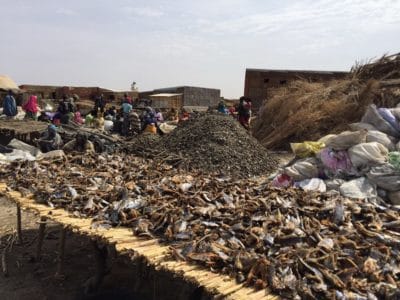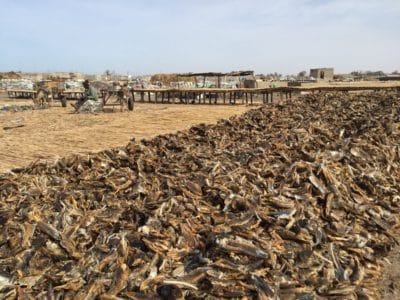While filming in Senegal for An Ocean Mystery: The Missing Catch we visited the coastal town of Joal. It is about 2 hours drive south of Dakar, 3 if you get stuck behind a slow truck. When we arrived we passed groups of men repairing fishing nets on the street, large ice making plants, and various hand painted signs offering to repair outboard motors. Fishing was clearly important here but it wasn’t until the following morning that we understood what people meant when they said that life in Joal revolves around sardines.
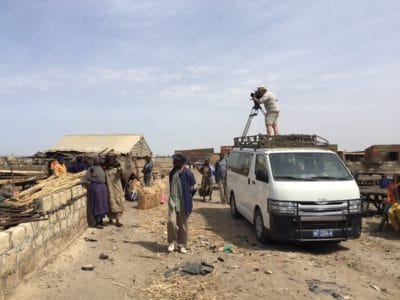
The film crew sets up in Joal to capture the day’s fishing activity.
The fishermen used beautiful traditional boats called pirogues to catch their fish. Pirogues seem to come in many different sizes, some with a crew of two or three men while others were much larger with as many as twelve men onboard. As the sun rose they appeared first on the horizon not too far out at sea and then made their way into shore to offload their fish. As they got closer to shore large crowds of people appeared on the beach wondering what the sea had produced during the night.
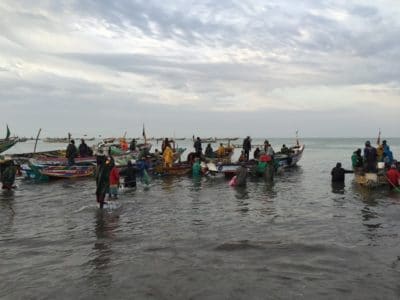
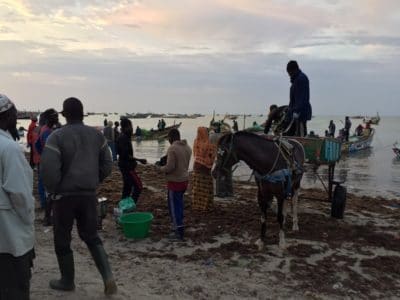
Crowds of people appear on the beach to greet the incoming pirogues, wondering what the sea has produced during the night.
As soon as the pirogues arrived, men with large plastic crates ran into the water. They drew in their breath and pulled up their shoulders as the cold water lapped their waists and chests. Soon they were balancing the crates on their heads while men from the pirogues filled them with sardines. Once their crate was full they ran up the beach to a large concrete building where the fish buyers waited.
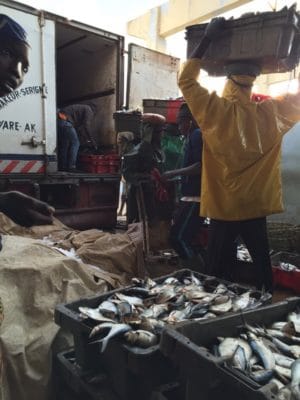
Crates of fish from the night’s bounty.
Once inside the building the men were soon trailed by two or three small boys each. The boys ran behind the men waiting for a sardine or two to fall from the crates. As soon as a fish slipped out the boys grabbed it up and the men with crates ran on. A free fish was not always left to chance and on one occasion we saw a boy reach up with the stealth of a cat and paw out a sardine for himself.
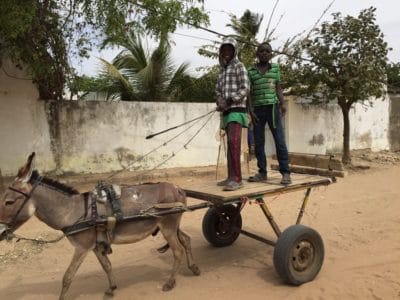
Young boys drive a donkey-drawn cart to the beach. Perhaps they will snatch a fish or two for themselves!
The men took the crates of fish to fish buyers and waiting trucks, and then went back down to the boats to collect another crate load. By now ponies and carts were in the cold water, fishermen were loading the carts with all kinds of fish, including sardines. Many of these pony carts were destined for the nearby fish processing area, a large flat expanse of land crisscrossed with long low table like structures made from sticks, and other similar shaped concrete structures for smoking the fish.
None of the smokers were alight. We met Seynabou Dieng, head of a group of fish processors and she told us, “we have not had any fish here for two weeks, there are no fish to smoke.” And that’s a problem. The ladies make their living ‘transforming’ the fish. First smoking them, then removing the tails, fins and head by hand then laying them out on the low tables to dry completely. After that the fish are boxed up, placed in warehouses, then finally sent by truck to neighboring Burkino Faso. They provide protein and much needed micro nutrients to the population there.
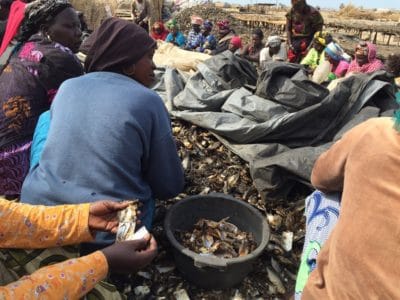
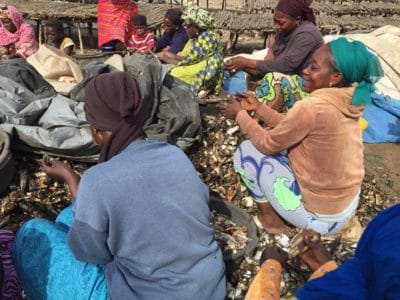
Local women ‘transform’ the fish.
We also meet Mbaye Seck, the coordinator for the Local Committee for Artisanal Fishing in Joal, and we ask him what he sees when he’s out fishing. “You cant find fish here anymore. They’re becoming endangered. If you work 15 days a month, the other 15 days you cant work anymore.” He continues, “And for those 15 days that you do work, you cant even catch much. You rarely catch any fish. And the other days, you cant catch anything at all.”
Both Seynabou and Mbaye blame industrial fisheries for taking too many fish from the water. Mbaye explains, “Industrial boats have hugely contributed to the lack of fish. The fish stick together as they travel through Mauritania, Senegal, all the way to Guinea, and industrial boats catch them out at sea. That’s why we don’t see them here anymore.”
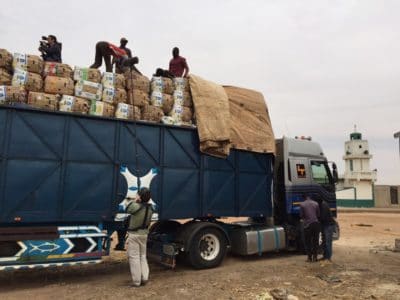
Smoked dried fish bound for Burkino Faso where they provide protein and much needed micro nutrients.
All the fishermen we speak to report the same problem, they are catching fewer and fewer fish. Not just in Joal, but in Dakar too. And in every fishing town we filmed in for the making of An Ocean Mystery: The Missing Catch. Some how it feels more urgent here because so many people are totally dependent on the fish for their livelihood. Mbaye Seck sums it up when he says, “We don’t have enough land to farm because it doesn’t rain enough for the land to be usable. So we only have fishing. And if fishing is ruined, then the people won’t have anything any longer to do. And that’d be a catastrophe.”
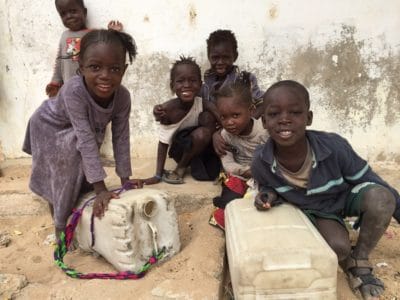
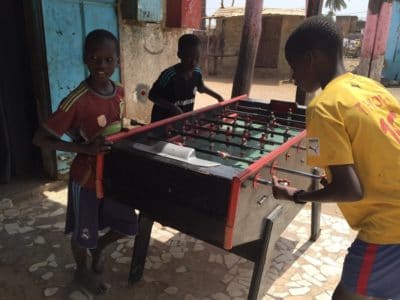
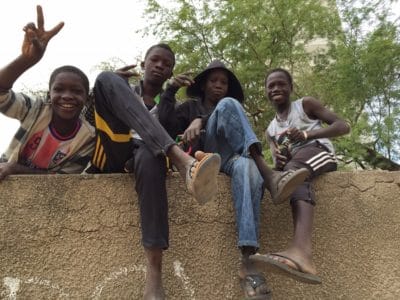
Joal’s youth find ways to fill up their time in the face of an uncertain future.
